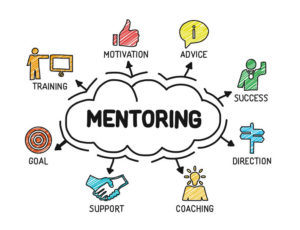By Rose O Sherman, EdD, RN, NEA-BC, FAAN
A colleague recently complained to me that she had agreed to mentor a rising leadership star but was now having second thoughts about the decision. They had several good conversations, but she was noticing a pattern – the mentee had not implemented any of the career advice that they discussed. She thought they had a clear understanding at the beginning of the relationship around expectations. They had agreed to set an agenda for each follow-up meeting and a timeline for the goals that they mutually established. The mentee had also indicated a willingness to do some stretch assignments that demonstrated her commitment to the mentoring experience. She wondered how things had gone wrong and what to do about it.
In his new book, The Leader’s Greatest Return, John Maxwell talks about the importance of leaders mentoring high potential emerging leaders. When he selects leaders to mentor, Maxwell looks for three key qualities:
- They need to be grounded – possessing a solid foundation to build on.
- They need to gifted – possessing the strengths that will help them to succeed.
- They need to be growing – possessing a hunger and capacity to be developed.
Unfortunately, Maxwell contends some rising stars are sometimes strong-willed and confident. While these are good qualities, they can also make these leaders hard-headed and overconfident about what they know. While they may be rising stars, they lack teachability. They fail to implement advice that they are given and are not open to change. Maxwell recommends that if we find ourselves in a situation such the one that my colleague is experiencing with her mentee that we talk with the mentee about the following stages of teachability:
Stage One – The mentee doesn’t seek advice.
Stage Two – The mentee doesn’t want advice.
Stage Three – The mentee doesn’t object to advice.
Stage Four – The mentee listens to and acts on advice.
Stage Five – The mentee welcomes advice.
Stage Six – The mentee actively seeks advice.
Stage Seven- The mentee consistently follows the advice given.
Stage Eight – The mentee gives credit to their mentor if the advice is successful.
Maxwell recommends that for a successful relationship, stage 4 is the minimum. Follow-up is a crucial part of successful mentoring. This is a conversation that my colleague will need to have if the relationship continues. The sad part of this is the lost opportunity. This colleague is a high-powered nurse leader who could be enormously helpful to this young leader’s career. An experience like this can also taint any future requests that are made of my colleague to serve as a mentor. If you are seeking mentorship, you should ask yourself how teachable you are. If you are not ready to take advice and feedback, you are probably not prepared to be mentored.
Read Rose Sherman’s new book – The Nurse Leader Coach: Become the Boss No One Wants to Leave
Reference
Maxwell, J.C. (2020). The Leader’s Greatest Return. New York: HarperCollins Leadership.
© emergingrnleader.com 2020



 LinkedIn
LinkedIn Instagram
Instagram